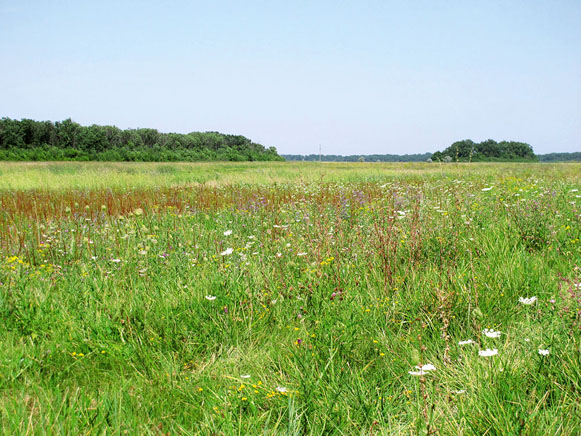Meadowland
Meadowland. A type of grassland consisting mostly of perennial mesophytes. Unlike the vegetation of the steppe, which becomes largely dormant in the dry summer heat, meadowland vegetation develops throughout the vegetative period. The most conducive conditions for the development of natural meadows are in the forest-steppe belt, where temperate, subhumid conditions prevail, and the soils are rich in nutrients. In the steppe zone upland meadows are rare, for the steppe vegetation is dominated by drought-resistant xerophytes and ephemerals. In the forest zone to the north, natural clearings are either dry soil zones or wetlands. Nearly all meadowlands in Ukraine (except those in nature preserves) are now used for agriculture. Where they have not been plowed, they are used as hayfields or pasture. Hayfields and pastures were also created from areas that were not natural meadows. In 1988, hayfields (both natural and cultivated) occupied 2.1 million ha, and pasture (both natural and improved), 4.8 million ha (respectively representing approximately 3.5 and 8 percent of the total land area of Ukraine). About 60 percent of Ukraine’s hayfields are in Polisia and the Carpathian Mountains, where they occupy over 30 percent of the arable land. Pastures are found in the mountainous areas and the floodplains as well as on the steep slopes of ravines in the steppe belt of Ukraine.
[This article originally appeared in the Encyclopedia of Ukraine, vol. 5 (1993).]
